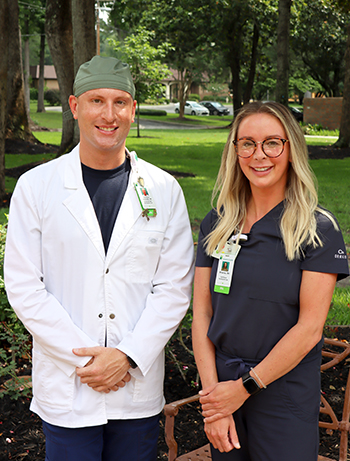How St. Joseph’s/Candler nurses proactively care for patients
Miscellaneous
When it comes to patient care, our nurses like to use the word proactive.
“If we can proactively care for you, we anticipate your needs and that’s part of our quality here,” says Matthew Jaskowak, clinical nurse manager of the Progressive Care Unit at St. Joseph’s Hospital.
One way we do this is through hourly rounding, in which nurses check on their patients approximately every hour. That doesn’t mean you won’t see your nurse more frequently. Ongoing care, such as giving medications or issuing tests, will continue as scheduled, regardless of the last time your nurse saw you.

And while we won’t wake you while you are sleeping, you can be assured we are still checking on you even overnight.
Hourly rounding is a fairly new initiative that Jaskowak and the staff on PCU at St. Joseph’s Hospital kicked off to make sure their patients feel comfort and are safe. And while our nurses have always kept a close eye on their patients, this allows for us to do intensive check-ins throughout your stay and anticipate your needs.
St. Joseph’s/Candler has always strived to keep the lines of communication open between patients and nurses. Each room has a board with the nurse’s name and number written on it. It’s updated at shift change. There’s also a call button a patient can press to reach the nurse’s station anytime they need something.
But the goal has changed, says Brianna Hagerty, nurse on PCU at St. Joseph’s Hospital. “Really the goal is for patients not to have to call us because we are already in there.”
It’s proactive nursing, Jaskowak adds.
“Because the more that we are there checking on them, we are anticipating their needs instead of being reactive to them,” he says. “Instead of them calling us, if we check on them approximately every hour, they won’t need to hit a call button because they know we are coming back.”
Hourly rounding addresses the four Ps: pain, position, potty and protection. Your nurse will ask you questions addressing these areas that make sure you are safe and comfortable and help you with anything you need whether it’s help going to the bathroom or a cup of water. It also helps build a trusting relationship between patient and nurse, Hagerty says.
While we respect that some patients may not want to be bothered every hour, the whole purpose is to keep you safe, comfortable and healing as quickly as possible. Hourly rounding has shown to decrease falls and other safety events, as well as patient complaints, Hagerty and Jaskowak say.
If you or a loved one require a stay at St. Joseph’s Hospital or Candler Hospital, we encourage you to talk to your nurses and ask questions. They’ll be around quite often to help you get back home sooner.